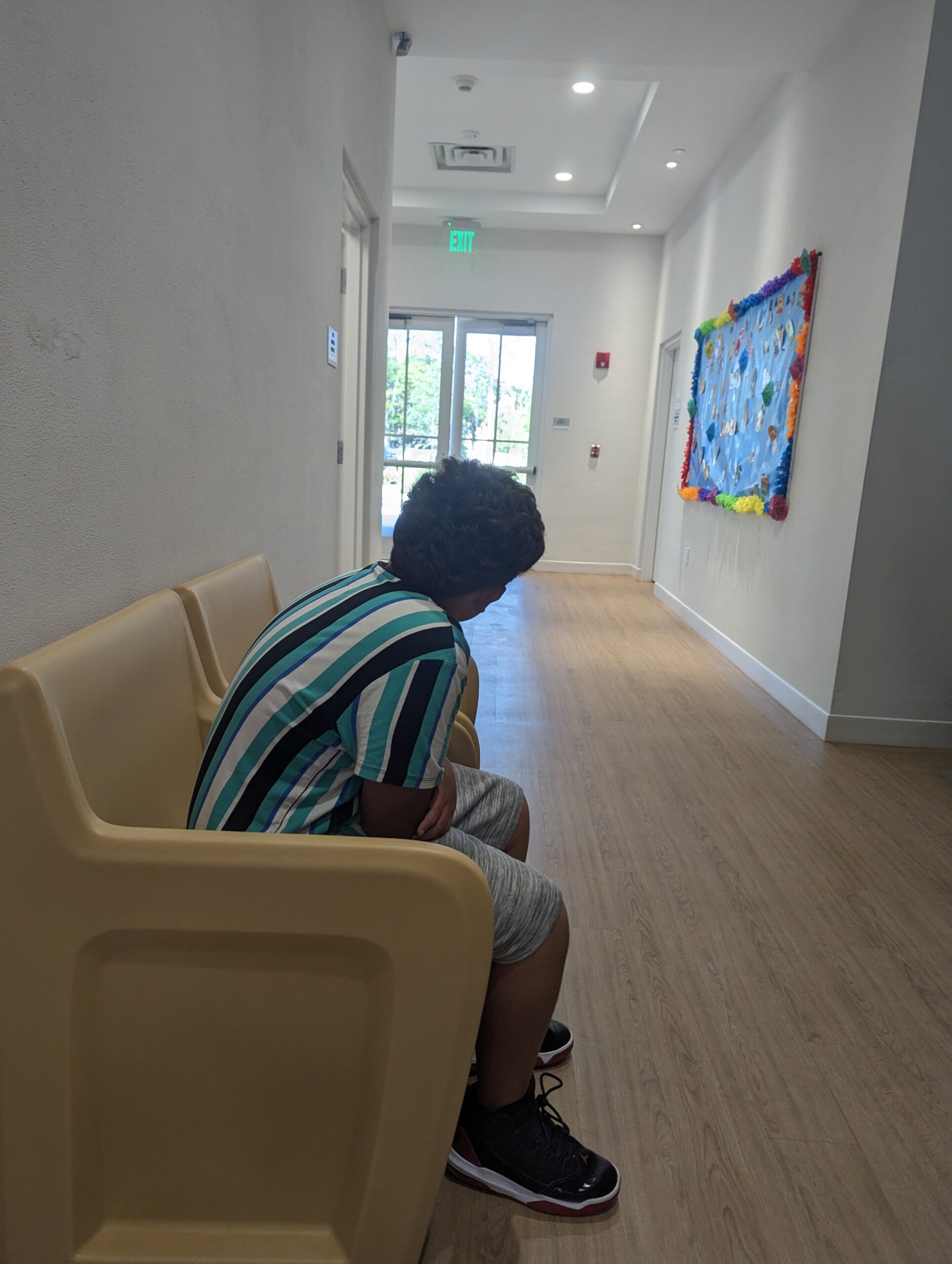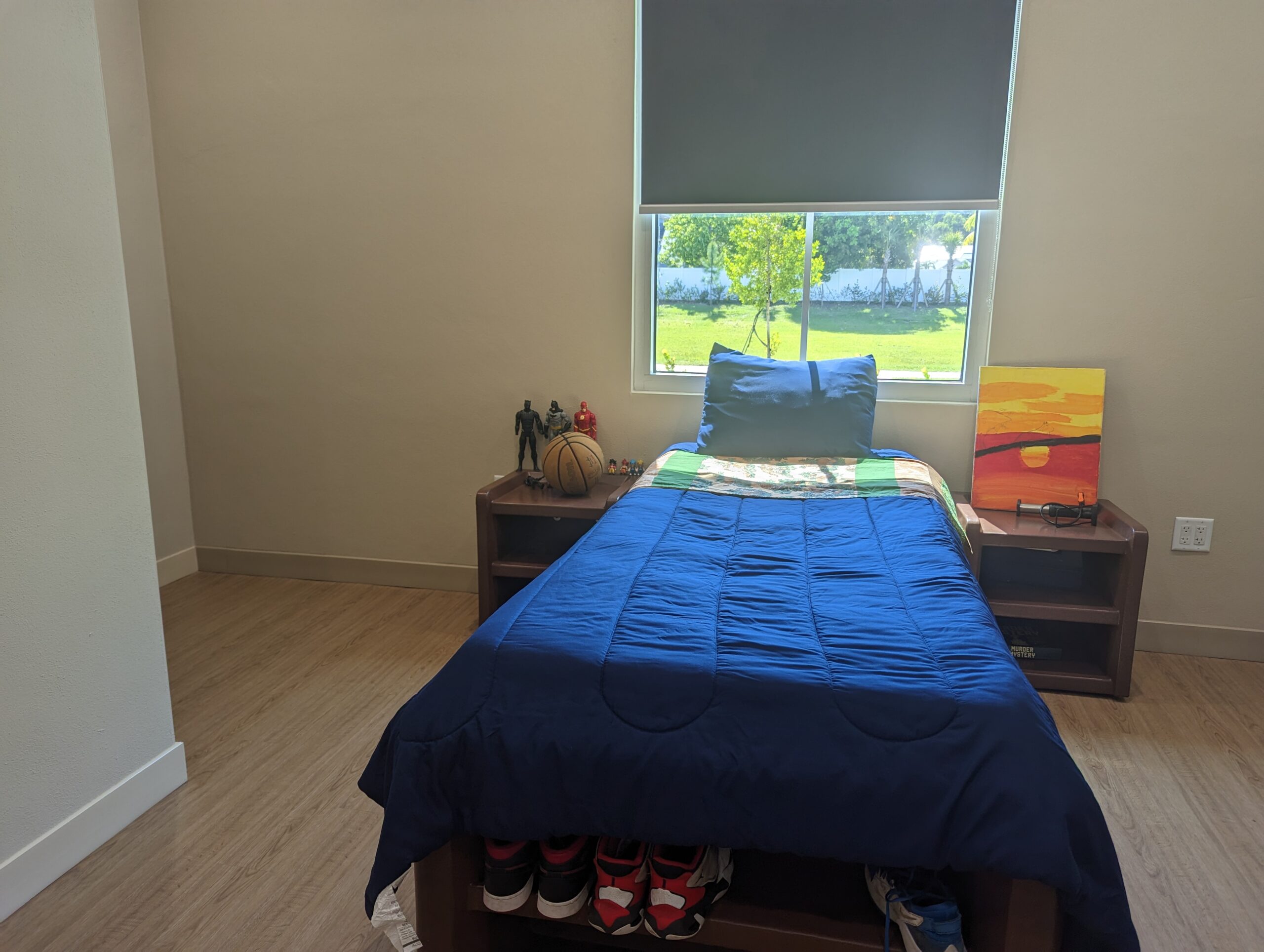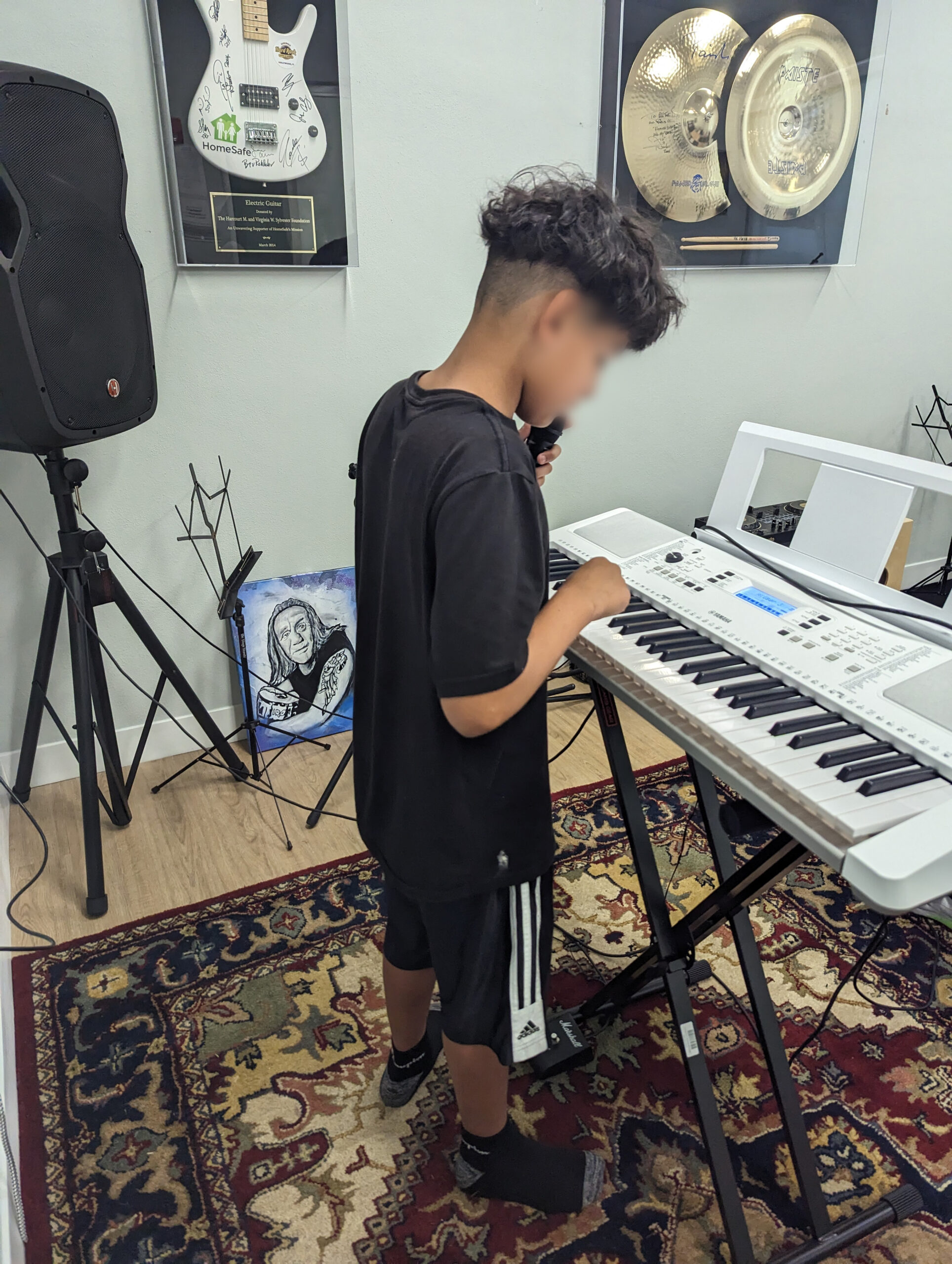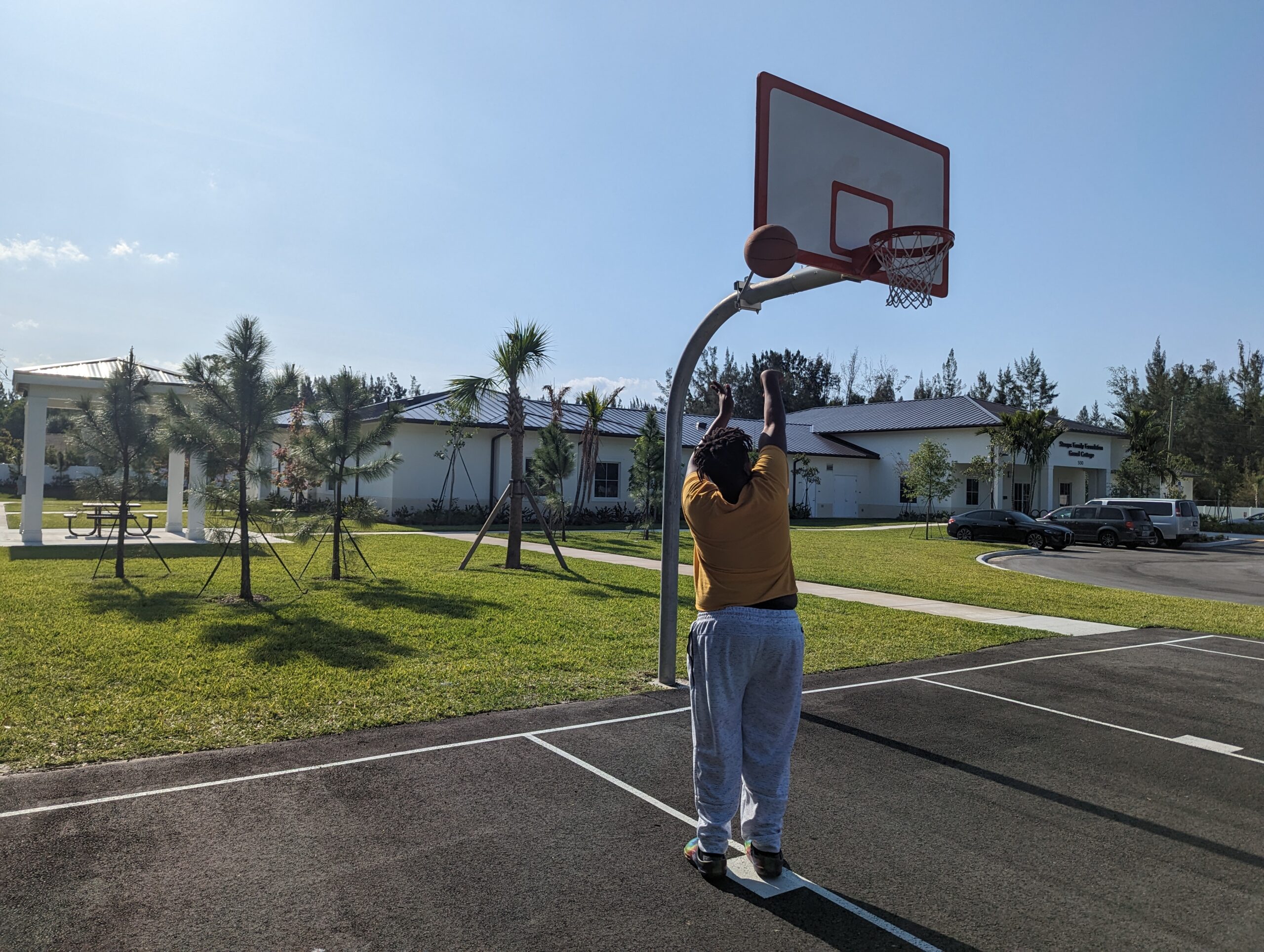I came to HomeSafe from a large nonprofit healthcare system because I wanted to have a more intimate connection between the work I do as chief philanthropy officer and the people we serve. Now in my second year, I couldn’t be happier with my decision—because the work we do at HomeSafe is even more important than I imagined. As a mother of two beautiful young children, I know how important it is to share in their development, especially the importance of ensuring their health and safety. Over the last year, I have had the opportunity to meet many of the children we serve, from the young boy who came to us without shoes and had been sleeping on the floor, to the young girl who had experienced sexual abuse by her mother’s boyfriend.
The other day I visited with the boys in our new Sylvester Family Foundation North Campus. Though there are many stories to share, I felt an immediate connection to a young boy named “Nick.” Nick is thirteen and has a bright smile and a huge personality. He shares, “I just really love to talk.” He also loves school, in particular math, and he dreams of getting taller so that he can play high school basketball. Nick is motivated by one singular goal—to graduate from HomeSafe and move in with his grandmother.
“My grandma loves me, and she wants to adopt me. But first, she told me that I need to learn to manage my emotions and not be so angry.”
Nick was removed from his parents when he was just five years old. Both parents were gripped with substance abuse and physically abused him. Nick’s grandmother cared for him the best that she could, but she was unable to manage his frequent outbursts and acts of aggression.
When kids like Nick are hurt by parents who are supposed to love and protect them, the sacred bond of trust is shattered. Feelings of safety and security evaporate as they feel the depth of loneliness and self-doubt. For every child that experiences unimaginable trauma at an early age, the resulting stress, fear, and shame can manifest differently. For Nick, it comes out as anger—punching walls, breaking things, and screaming profanities when he feels threatened.
After a number of emergency mental health visits to the hospital, Nick was deemed a danger to himself and placed in a statewide inpatient program, also known as a medical lockdown facility. After some time in this highly restricted environment, he was allowed to come to HomeSafe to reintegrate back into society. It was a tough transition for him. He felt alone and uncertain in yet another residential facility, surrounded by strangers that he didn’t’t think he could trust.
The first person that Nick connected with at HomeSafe was his therapist Ms. Brittney. In his words, “She is very direct and honest with me, but in a caring way. She is helping me create the path back to my grandma.” Ms. Brittney found out that Nick loves basketball, so she began to hold their therapy sessions shooting hoops on the basketball court. One time, Nick let her know that they had missed their therapy session that week, and he was surprised to find out that their court time was technically therapy.
Mr. DeMarcus, a playful and active Youth Development Professional, also built rapport with Nick by finding fun games that they could play and working out together in the fitness center. It didn’t take long for Nick to open up to Mr. DeMarcus. “He has me on a workout regimen,” Nick shares. “He pushes me and he wants me to see how much I’m capable of accomplishing.”
Program Supervisor Mr. Derek also plays an integral part of Nick’s progress. Derek sees the best in all of our kids and he finds opportunities to congratulate them on their successes, large and small. The boys had a group session while I was visiting. Nick asked to be excused to go back to his room for a few minutes. He was feeling irritable, and rather than let his anger build up into a giant outburst, he asked to go back to his room and take a quiet moment to himself. I watched Derek pull him aside and acknowledge his accomplishment.
Nick still has good and bad days, but he is taking one step at a time and trying not to let the tough days turn into weeks. He is proud of how far he has come, and of the new coping skills he is using, like squeezing a stress ball instead of punching a wall. He loves his private bedroom at HomeSafe, because it is a safe place where he can go when he feels like his emotions are taking over. He is also happy that he has built positive relationships with adults who give him the nonjudgmental love and support that he needs.
We wrapped up our interview when Nick found out he had received a care package from his grandma. He beamed as he went off to his room to open it.
Laura Golden Barker
HomeSafe Chief Philanthropy Officer
Nick is developing coping skills and working on taking accountability for his actions so that he can go back to his grandmother. Having a private bedroom and bathroom creates a safer, happier living environment and gives our children the quiet space they need when they are overwhelmed.
HomeSafe’s therapist, Ms. Brittney, spends time with each child in a space that makes them feel safe and happy—the music room, fitness center, or on the basketball court—helping them open up and share feelings that they typically keep bottled inside.





